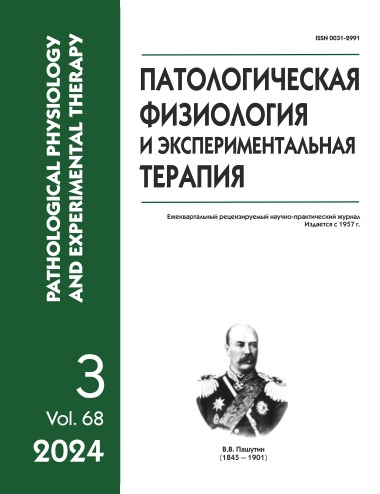Stress of early maternal separation affects the neuroimmunoendocrine characteristics of rats in a sex- and age-dependent manner
Abstract
Background. Early-life stress (ELS) often accompanied by persistent neuro-immune-endocrine dysfunctions in later life significantly increases the risk of developing neuropsychiatric diseases with underlying emotional dysregulation. ELS-related disorders occur at different frequency in males and females, may manifest sex-specific symptoms, and have different physiological markers. The paradigm of neonatal maternal separation is used to model the symptoms of stress-induced diseases in rats. The aim of the study was to assess the effect of repeated, prolonged maternal separation with simultaneous isolation from siblings (MSI) on the state of the peripheral immune system and the functioning of the stress-responsive system in adolescent (1 month) and adult (2 months and 11 months) male and female rats with behavioral disorders.
Methods. Behavioral disorders were tested using standard methods (open field, elevated plus maze, social interaction test, etc.). Concentrations of 27 cytokines/chemokines were measured by a multiplex assay. The functional activity of the classical complement pathway was measured by a hemolytic test on human erythrocytes. Blood serum corticosterone was measured by an enzyme-linked immunosorbent assay (ELISA).
Results. The development of the hyperactive phenotype in adult MSI rats of either sex was associated with decreases in the leptin concentration and thymus mass in adolescence. Concentrations of fractalkine and VEGF showed sex-dependent changes: the chemokines were reduced in males during adolescence whereas in females, in young adulthood; only older females showed increases in chemokine concentrations. MSI females at the age of 2 months had a pro-inflammatory cytokine profile that persisted through the age of 11 months. The functional activity of the complement system was decreased in two-month-old MSI males and increased in females. Only MSI males showed a decrease in basal corticosterone in adolescence and an increase in the adrenal mass in young adulthood.
Conclusion. It was assumed that different pathophysiological mechanisms are involved in the implementation of the MSI effects in male and female rats.






